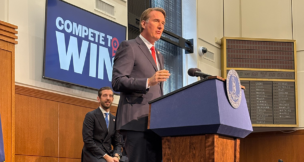Political Kool-Aid
Depending on who’s in charge in Dee Cee, plans alternate on what is best for the U.S. economy. The choices are seemingly reduced to tax cuts versus government spending, but things are rarely as they seem. More accurately, these choices are two different sides of the same dollar — or trillions of dollars to be more exact.
Government dollars have one vexing thing in common: They are deficit dollars. Despite being politically savvy in a populist kind of way, tax cuts have never paid for themselves through economic growth, nor have they been offset by reduced spending. Similarly, higher spending is rarely accompanied by taxes to cover new costs.
Fiscal responsibility? For the most part, that’s just the sound of political lips flapping.
The backbone to balance budgets has always been lacking. The result is an increasing federal deficit. Still, it is a mistake to consider both tax cuts and increased spending as no more than two different flavors of the same political Kool-Aid.
The Tax Cuts and Jobs Act of 2017 (TCJA) passed under President Donald Trump was estimated by the Congressional Budget Office (CBO) to come in at a cost of roughly $2 trillion over 10 years. Republicans were all for it.
Similarly, the $1 trillion Infrastructure Investment and Jobs Act (IIJA) negotiated by President Joe Biden’s administration and passed by the Senate last month will likely be increased by an additional $2 trillion or more in “human infrastructure” spending. In fairness, not all of this is new spending. Some of it may be covered through higher taxes and some probably not. Democrats are all for it.
Fiscal responsibility? Maybe that starts with understanding that government plays a legitimate role; spending for the common good is what government should be doing. To think otherwise is to be absorbed by individual self-interest. U.S. spending for highways, bridges, airports, the power grid, broadband and even education and mental health has been well short of what’s needed for decades. It’s time for the U.S. to catch up.
The culture of American exceptionalism looks backward more than half a century to the boom following World War II. If the proposed new spending looks anything like the cost of that war, it will be well worth it and much needed, especially coming on the heels of a pandemic that took an even greater toll on American lives.
While both tax cuts and spending programs have fueled federal deficits, they are not equivalent in terms of economic outcomes. Tax cuts have led to significant inequities in income distribution. The wealthy have never been better off. It’s a telling anecdote that the richest men in the world are now spending their money on space flights, something that only the richest nations used to be able to afford.
Alternatively, government spending builds roads, bridges and other projects for the common good. The jobs created put money in the hands of working-class families who spend it on local goods and services. They pay taxes and support a growing economy, as compared with billionaires who pay little or no income taxes while spending more on personal investments and unparalleled luxuries like space flights.
When it comes to federal contracting, Virginia benefits more from federal spending than any other state in the nation. The commonwealth has the second-largest federal payroll of any state. On a per capita basis for total federal spending, including contracts, grants, payroll, retirement and nonretirement benefits, Virginia places first in the nation.
Tax cuts have been tilted toward the ultra-wealthy and have failed to trickle down money into either the common good or the hands of families needing it the most. Federal spending, on the other hand, is good for infrastructure and jobs, good for families and good for Virginia. It’s just good business.
i














